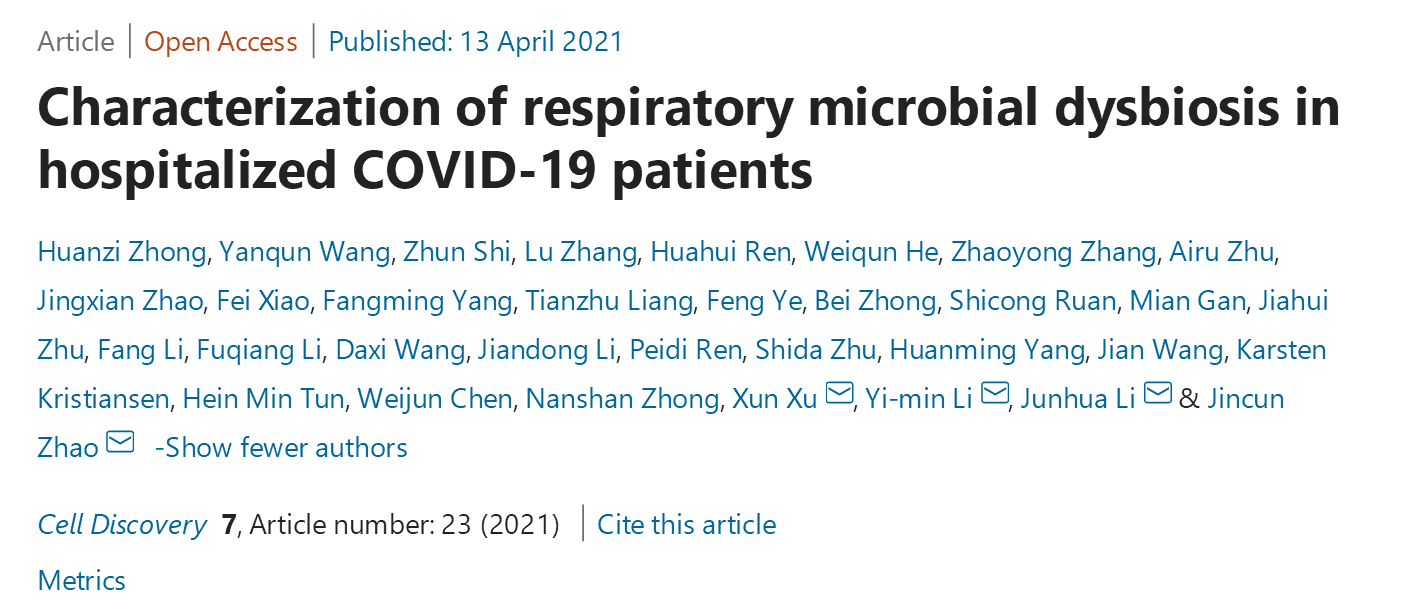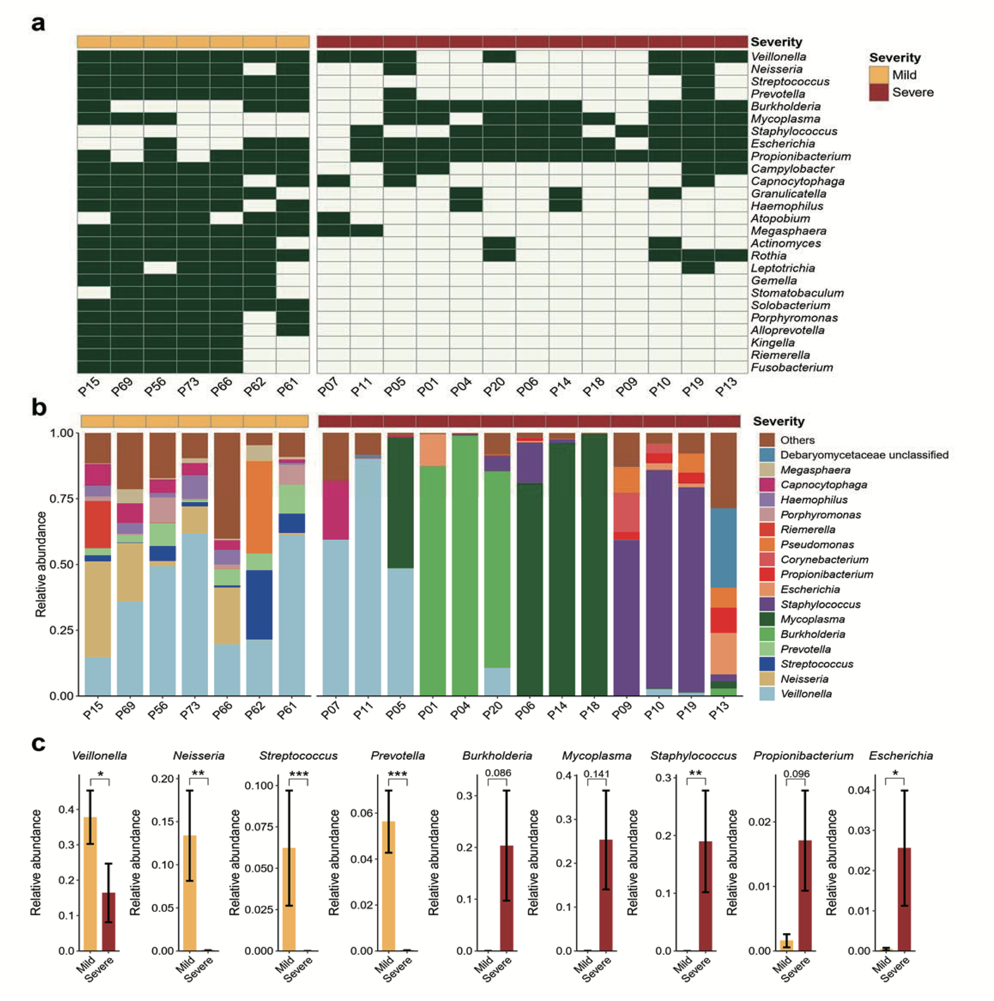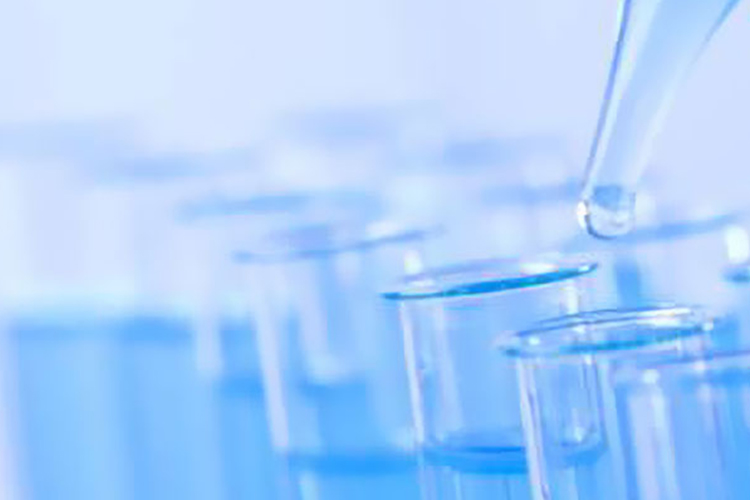Zhao Jincun’s Research Team and BGI Research Institute Discovered the Relation between Respiratory Microbial Dysbiosis in Hospitalized COVID-19 Patients and Disease Infections
2021-04-142741Zhao Jincun’s research team of the State Key Laboratory of Respiratory Disease worked with units like BGI Research Institute and discovered the characterization of respiratory microbial dysbiosis in hospitalized COVID-19 patients, explaining that SARS-CoV-2-related microbial dysbiosis and various antibiotic-resistant respiratory microbes/pathogens in hospitalized COVID-19 patients in relation to disease severity, providing an important theoretical guidance for the treatment of COVID-19 patients. Related paper Characterization of respiratory microbial dysbiosis in hospitalized COVID-19 patients was published in Cell Discovery on April 13, 2021.

This study collected various types of specimens of patients with mild and severe COVID-19 at consecutive time points, including sputum, nasal and throat swab, anal swab and feces, and perform ultra-deep metatranscriptomic sequencing of clinical specimens, to compare and analyze the characterization of respiratory microbial dysbiosis in different patients. Studies have found that the main types of co-infected viruses in severely ill COVID-19 patients are the human alphaherpesvirus 1, rhinovirus B and human orthopneumovirus. In addition, the main microorganisms co-infected by severe patients include: Burkholderia cepacia complex (BCC), Staphylococcus epidermidis, Mycoplasma spp (M. hominis and M. orale). Clinical tests have also confirmed the existence of related pathogens with co-infection. Compared with the respiratory microbial composition of patients with mild COVID-19, it was found that respiratory microbial dysbiosis is significant in critically ill patients. From one of the clinical specimens of critically ill patients, it is found that re-infection of B. cepacia and related virulence gene expression may be related to the subsequent aggravation of the disease.

ThComparative analysis of respiratory microbial composition in patients with mild and severe COVID-19
SARS-CoV-2 is the third highly pathogenic coronavirus discovered at the end of 2019. It is highly pathogenic and rapidly transmit from human to human. As of mid-April 2021, it has infected more than 130 million people and resulted in more than 2.9 million deaths worldwide. The mortality rate is extremely high in severe and critically ill patients. Clarifying the characterization of respiratory microbial dysbiosis in different patients is helpful to the targeted treatment of COVID-19 patients, especially the treatment of critically ill patients. The co-first authors of this article include Zhong Huanzi, Wang Yanqun, Shi Zhun, Zhang Lu, Ren Huahui, He Weiqun, Zhang Zhaoyong, Zhu Airu, Zhao Jingxian, Xiao Fei from BGI, Guangzhou Medical Hospital, IQTC, and the Fifth Affiliated Hospital of Sun Yat-sen University. The corresponding authors of this article include Zhao Jincun and Li Yimin from Guangzhou Medical University/Guangzhou Institute of Respiratory Health/the State Key Laboratory of Respiratory Disease; and Xu Xun and Li Junhua from BGI Research Institute. This project is supported by the National Science and Technology Major Project, the New Coronavirus Special Project of the Ministry of Science and Technology, and the New Coronavirus Special Project of Guangdong Province.
















